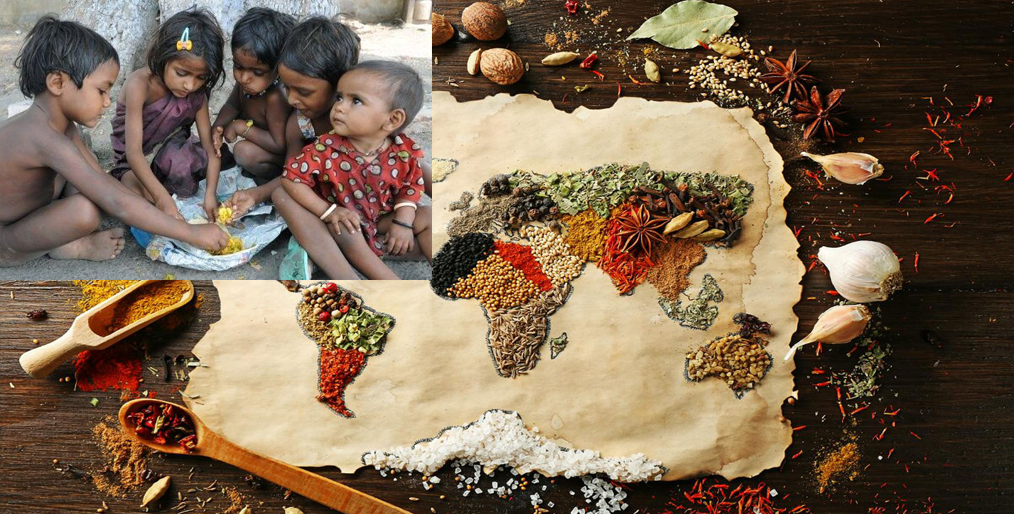
[caption id="attachment_6091" align="aligncenter" width="1014"] File Photo[/caption]
From wildfires in California and locust attacks in Ethiopia, epidemic lockdowns in Italy and Myanmar have disrupted work, climate change and disrupted COVID-19 food production. Millions more are starving. All the problems together, 2020 has been recorded as one of the most dangerous years in the pages of history.
Now there are fears the situation could worsen next year as both the coronavirus crisis and wild weather exacerbate fragile conditions linked to conflicts and poverty in many parts of the globe, aid officials told the Thomson Reuters Foundation.
“Even before COVID-19 hit, 135 million people were marching towards the brink of starvation. This could double to 270 million within a few short months,” warned David Beasley, head of the U.N. World Food Programme (WFP), in emailed comments.
In April, Beasley, whose Rome-based organisation was awarded the 2020 Nobel Peace Prize, told the U.N. Security Council that the world was facing “a hunger pandemic” and “multiple famines of biblical proportions”.
“Those warnings are backed up by even stronger evidence today,” he told the Thomson Reuters Foundation, noting that Burkina Faso, Nigeria, South Sudan and Yemen faced famine, and the full impact of COVID-19 had yet to be felt in many places.
At the same time, the coronavirus crisis has shown how faster international action and better cooperation in areas like science and technology could help tackle the problem, he added.
Farmers and poor urban residents have so far borne the brunt of the pandemic, meaning inequality between and within countries could deepen further in 2021, said Ismahane Elouafi, chief scientist at the U.N. Food and Agriculture Organization (FAO).
Cut off from markets and with a plunge in customer demand, farmers struggled to sell their produce while informal workers in urban areas, living hand to mouth, found themselves jobless as lockdowns were imposed, she said.
As a result, millions of people - from Texas and Geneva to Bangkok and Accra - were forced to rely on food handouts for the first time. Meanwhile, more than 50 million people in East and Central Africa require emergency food aid - and those numbers are set to rise as the region braces for a harsh drought linked to the La Nina climate pattern, as well as more locust swarms, Oxfam said.
With 2020 on track to be one of the hottest years on record, African farmers have already seen a surge in tough climate conditions as well as crop-destroying pests, said Agnes Kalibata, U.N. special envoy for the 2021 Food Systems Summit.
“The double whammy of extreme weather and COVID-19 has brought the shortcomings of our global food system into sharp relief,” said Kalibata, a former Rwandan agriculture minister. See details...
Source: Online/SZK
File Photo[/caption]
From wildfires in California and locust attacks in Ethiopia, epidemic lockdowns in Italy and Myanmar have disrupted work, climate change and disrupted COVID-19 food production. Millions more are starving. All the problems together, 2020 has been recorded as one of the most dangerous years in the pages of history.
Now there are fears the situation could worsen next year as both the coronavirus crisis and wild weather exacerbate fragile conditions linked to conflicts and poverty in many parts of the globe, aid officials told the Thomson Reuters Foundation.
“Even before COVID-19 hit, 135 million people were marching towards the brink of starvation. This could double to 270 million within a few short months,” warned David Beasley, head of the U.N. World Food Programme (WFP), in emailed comments.
In April, Beasley, whose Rome-based organisation was awarded the 2020 Nobel Peace Prize, told the U.N. Security Council that the world was facing “a hunger pandemic” and “multiple famines of biblical proportions”.
“Those warnings are backed up by even stronger evidence today,” he told the Thomson Reuters Foundation, noting that Burkina Faso, Nigeria, South Sudan and Yemen faced famine, and the full impact of COVID-19 had yet to be felt in many places.
At the same time, the coronavirus crisis has shown how faster international action and better cooperation in areas like science and technology could help tackle the problem, he added.
Farmers and poor urban residents have so far borne the brunt of the pandemic, meaning inequality between and within countries could deepen further in 2021, said Ismahane Elouafi, chief scientist at the U.N. Food and Agriculture Organization (FAO).
Cut off from markets and with a plunge in customer demand, farmers struggled to sell their produce while informal workers in urban areas, living hand to mouth, found themselves jobless as lockdowns were imposed, she said.
As a result, millions of people - from Texas and Geneva to Bangkok and Accra - were forced to rely on food handouts for the first time. Meanwhile, more than 50 million people in East and Central Africa require emergency food aid - and those numbers are set to rise as the region braces for a harsh drought linked to the La Nina climate pattern, as well as more locust swarms, Oxfam said.
With 2020 on track to be one of the hottest years on record, African farmers have already seen a surge in tough climate conditions as well as crop-destroying pests, said Agnes Kalibata, U.N. special envoy for the 2021 Food Systems Summit.
“The double whammy of extreme weather and COVID-19 has brought the shortcomings of our global food system into sharp relief,” said Kalibata, a former Rwandan agriculture minister. See details...
Source: Online/SZK
Comment Now